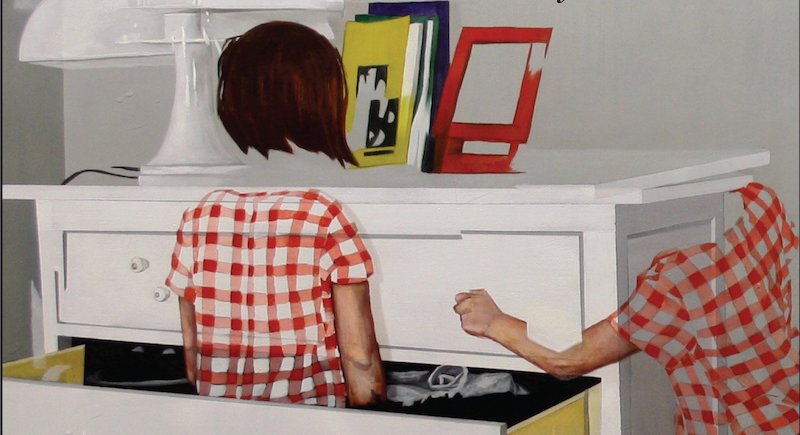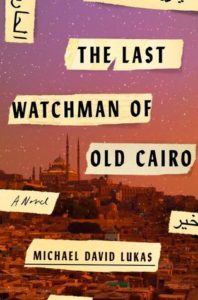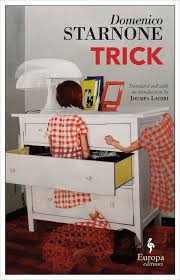
American Academy of Arts and Letters awards ($10K each) go to eight writers: Clare Cavanagh, Mary Gaitskill, Ishion Hutchinson, Marlon James, Kay Redfield Jamison, Rick Moody, Mary Robison, and Brenda Shaughnessy. The Virginia Festival of the Book in Charlottesville closes with a panel composed of hometown poet Rita Dove, plus Margo Lee Shetterly, Peter Ho Davies and Tyehimba Jess—all 2017 Anisfield-Wolf recipients—speaking to a SRO crowd about how art responds to racism. “I’m happy to be part of this conversation in a town that has been rocked by the violence of racial inequity,” Jess says. His reading from Olio includes a list of burned black churches. Shetterly, who grew up in Hampton, Virginia and writes about the space program in Hidden Figures, mentions that her research gave her insights into “the push to integrate the schools in the state of Virginia”—“the country’s most intransigent foe of integrated schools,” as she writes. “When you’re writing, are you hopeful?” Dove asks. And yes, putting it on the page, bringing stories to life, gives these extraordinary writers hope.
Anna Badkhen visits a village in Senegal, as she continues her chronicles of “everyday life in struggling nations such as Afghanistan, Iraq, Mali and Somalia;” Jennifer Clement’s Gun Love “provides a glimpse of people who dwell every day knee deep in the toxic waste of our gun culture;” Michael David Lukas attracts comparisons to Lawrence Durrell for his portrait of Cairo in his second novel; Henry James haunts the second Domenico Starnone novel translated by Jhumpa Lahiri, and Luis Urrea’s new novel has much to tell us about the immigrant condition.
Anna Badkhen, Fisherman’s Blues
Badkhen’s sixth book takes her to a village in Senegal where she observes the quotidian workings of the fishing fleet.
“For years—a millisecond, compared to our marine history—I have been thinking about boundaries,” she tells Beth Kephart. “Personal, political, physical, metaphysical. So it made sense to want to study their makings on the shifting frontier between earth and sea, between the ancient and the modern, between food and none. The foremost and fluid boundary that divides our lives into the solid, the known, terra firma—and the under-explored, the ephemeral, the ever-changing. To learn from fishermen who cross from land to sea and back daily what it means culturally, psychically, to be living on such a border.”
Cecily Sailer (Dallas Morning News) sets it up:
For more than a decade, Badkhen—who lives in Texas—has chronicled everyday life in struggling nations such as Afghanistan, Iraq, Mali and Somalia. With Fisherman’s Blues, she transports the reader to waterlogged life in Joal, Senegal, a coastal town southeast of Dakar. Having reported mostly from landlocked nations, Badkhen endeavors to understand how “the shifting demarcation line between earth and sea defines the way we see the world, shapes our community and communality.”
“While she writes about the way of life, she focuses on one fisherman, Ndongo Souaré, the captain who has taken Anna under his wing,” writes Lauren LeBlanc (Minneapolis Star-Tribune). “Married to three women—with whom he has multiple children—he struggles to support his families and continually postpones his dream of owning his own boat. While he’s a cellphone and GPS adapter, Souaré also believes in the voodoo charms of gris-gris and adheres to traditional methods of artisanal fishing, passed down from one generation to the next. Suspended between cultures, Souaré and his fellow fishermen are grounded by a love of life on the water.”
“A conventional account of life in Joal would be fascinating reading in and of itself—a crucial snapshot of an endangered lifestyle,” notes B. David Zarley (Paste). “What Badkhen has written instead is something more like a ghost, an incantation, a life captured in words. In powerful language shaped by the winds and tides, Badkhen not only describes the fishers’ lives but also imbues them with an energy that borders on the uncanny.”

Jennifer Clement, Gun Love
Clement’s fourth novel revolves around a twelve-year-old raised in a car in Central Florida by a single mother who gets involved with a gunrunner, with tragic consequences.
Erin Keane (Salon) writes, “It might be tempting to read this novel merely as an exemplar of the neo-Southern grotesque—a lush, humid tale of rural hard-lucks made all the more strange by the incongruous beauty of Clement’s lyric prose — but Gun Love is neither swampy freak show nor poverty porn. Rather it’s a fable of modern American violence, and the resilience it takes to survive a childhood in its shadow.”
“Clement is a brilliant stylist;” writes Michael Carts in Booklist’s starred review. “her figurative language is far more than fine; her metaphors and similes are superb; and together they create a haunting atmosphere—sometimes fey, occasionally whimsical, no stranger to tragedy but always heartfelt and spot-on, as are her beautifully realized, captivating characters Though sui generis, her work may remind some readers of Flannery O’Connor’s. Always evocative, it is an unforgettable knockout not to be missed.”
Ron Charles (Washington Post) concludes:
There’s an echo of Emma Donoghue’s Room in this story. Pearl speaks in a raw voice that can sound awkward one moment and precocious the next—a wholly believable consciousness for a child raised in such strange, constrained circumstances. “I was so grateful that my heart beat by itself,” she says at one point, “because I knew I would never be able to make it work if I had to do it.”
Full of sorrow and aching sweetness, Gun Love provides a glimpse of people who dwell every day knee deep in the toxic waste of our gun culture. They may be America’s forgotten children, but after reading this novel, you are not likely to forget them.

Michael David Lukas, The Last Watchman of Old Cairo
Lukas’s second novel crosses centuries and cultures as a young Berkeley graduate student tracks generations of the Muslim family who guarded Old Cairo’s Ibn Ezra Synagogue for nearly 1,000 years.
“Like a contemporary Lawrence Durrell, Lukas (The Oracle of Stamboul) turns the Egyptian city into a tantalizingly seductive place of mystery,” writes Publishers’ Weekly.
“A few years ago, Michael David Lukas wrote about what he calls the ‘polyphonic novel’ for this site,” notes Lydia Kiesling, editor of The Millions. “His new novel is a jewel of the form, weaving voices of modern Cairo with those from the city’s millennium-plus history, and describing events leading to the discovery of the famed Genizah trove in the Ben Ezra Synagogue. Lukas is interested in the sites of Jewish history in Muslim-majority contexts–his first novel, The Oracle of Stamboul, was a magical realist work about a Jewish girl during the waning days of the Ottoman empire. The Last Watchman of Old Cairo juxtaposes the peregrinations of Joseph–a young American graduate student with Egyptian Muslim and Jewish roots–with the life of a distant forbear and those of the so-called ‘Sisters of Sinai,’ who played a critical role in the development of scriptural history.”
“Last Watchman weaves a young man’s journey to discover answers to family secrets through multiple generations, Muslim and Jewish history, British imperialism and protection of an enigmatic, elusive Jewish artifact, the Ezra Scroll,” notes Lou Fancher (San Jose Mercury News).

Domenico Starnone, Trick
A second Starnone novel translated by Jhumpa Lahiri pits a septuagenarian illustrator against his own grandson in a tale replete with ghosts and dangerous chasms.
“Starnone echoes Henry James throughout,” I note in my BBC Culture column, “with ghoulish hallucinations, and piercing insights into identity and the shifting perceptions of aging. The appendix, Daniele’s sketchbook and journal, is both a prelude to the action and a stark meditation on art, ambition and failure.”
“In this layered, alternately witty and melancholy story, Mallarico sees shadowy apparitions everywhere when he returns to his childhood home in Naples,” writes Manuel Roig-Franzia (Washington Post). “And though they do not speak (these are not ghosts that rattle chains), they nudge him to assess his life and explore his insecurities. What ensues from Mallarico is a running internal dialogue about art, aging, love, infidelity, violence, envy and ambition.”
M.A. Orthofer (The Complete Review) writes, “Trick is a strong little story, of an old man and artist haunted by lost pasts, and the inability to find or keep his hold in the present. (For better and worse, this is probably an ideal book-club title.)”
“A gorgeous account of a man’s struggle to reckon with the life he’s lived and the lives he hasn’t,” concludes the starred Kirkus review.
Luis Alberto Urrea, The House of Broken Angels
Big Angel’s family gathers for his mother’s funeral as he faces his own end stage of cancer. Urrea captures community with all its rhythms, memories, and stories.
Moira Macdonald (Seattle Times) notes, “Urrea’s book, rich in detail and images, has much to say about the immigrant experience; about how language becomes both a barrier and a bond; and how a family defines home. But it’s especially moving as an end-of-life portrait, as Big Angel tries to take in every detail of days that are slipping away. Every moment in his life, as he perches on its edge, seems to come rushing back to him in waves; he remembers long-ago emotions, voices, even smells.”
The House of Broken Angels is, “at its most political, a border story,” writes Alexis Burling (San Francisco Chronicle). “The de La Cruz clan lives in a working-class neighborhood in South San Diego, much like the neighborhood where Urrea spent his childhood. Some are legal immigrants from Tijuana. Some are undocumented, while the younger ones are ‘Dreamers.’ With the ‘cyborg-sharp eye’ of the cops, not to mention ICE, always watching, their lives are far from stress-free. The flashbacks detailing how each of them arrived in America — and what they had to give up and endure while here—are not only chillingly accurate, they’re heartbreaking (and infuriating).”
John Freeman (Boston Globe) concludes:
In a world that reduces human complexity to phrases like anchor baby or in-migration, a novel like The House of Broken Angels is a radical act. It is a big, epic story about how hard it is to love with all of your heart, and all of your family — regardless of which side of the border they live on. After all, as this novel keenly reminds us, all of us will one day wind up on the other side.
If you buy books linked on our site, Lit Hub may earn a commission from Bookshop.org, whose fees support independent bookstores.

